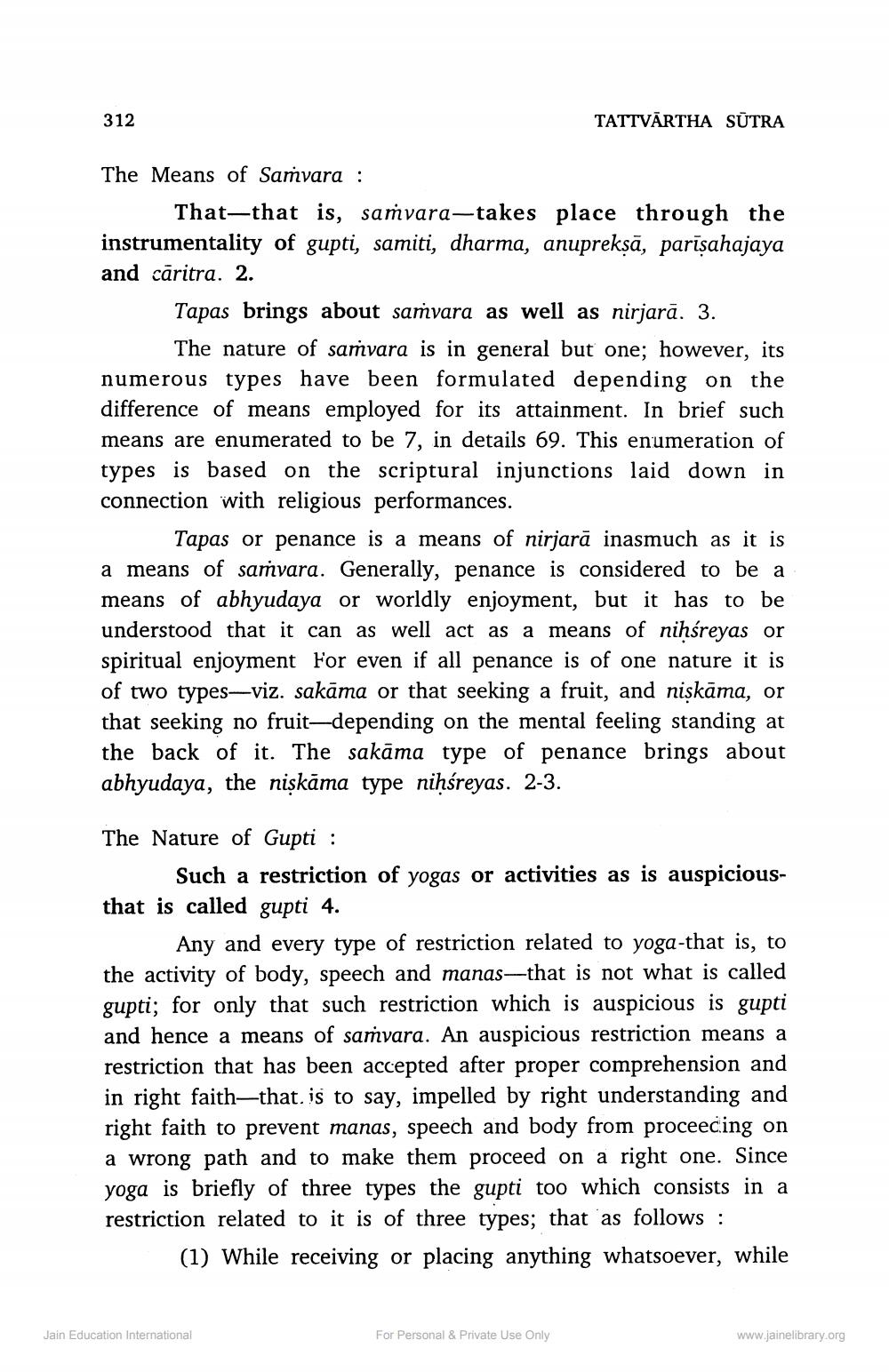________________
312
The Means of Samvara :
That-that is, samvara-takes place through the instrumentality of gupti, samiti, dharma, anuprekṣā, parīṣahajaya and caritra. 2.
TATTVĀRTHA SŪTRA
Tapas brings about samvara as well as nirjarā. 3.
The nature of samvara is in general but one; however, its numerous types have been formulated depending on the difference of means employed for its attainment. In brief such means are enumerated to be 7, in details 69. This enumeration of types is based on the scriptural injunctions laid down in connection with religious performances.
Tapas or penance is a means of nirjarā inasmuch as it is a means of samvara. Generally, penance is considered to be a means of abhyudaya or worldly enjoyment, but it has to be understood that it can as well act as a means of niḥśreyas or spiritual enjoyment For even if all penance is of one nature it is of two types-viz. sakāma or that seeking a fruit, and niṣkāma, or that seeking no fruit-depending on the mental feeling standing at the back of it. The sakāma type of penance brings about abhyudaya, the niṣkāma type nihśreyas. 2-3.
The Nature of Gupti :
Such a restriction of yogas or activities as is auspiciousthat is called gupti 4.
Any and every type of restriction related to yoga-that is, to the activity of body, speech and manas-that is not what is called gupti; for only that such restriction which is auspicious is gupti and hence a means of samvara. An auspicious restriction means a restriction that has been accepted after proper comprehension and in right faith-that. is to say, impelled by right understanding and right faith to prevent manas, speech and body from proceeding on a wrong path and to make them proceed on a right one. Since yoga is briefly of three types the gupti too which consists in a restriction related to it is of three types; that as follows :
(1) While receiving or placing anything whatsoever, while
Jain Education International
For Personal & Private Use Only
www.jainelibrary.org




